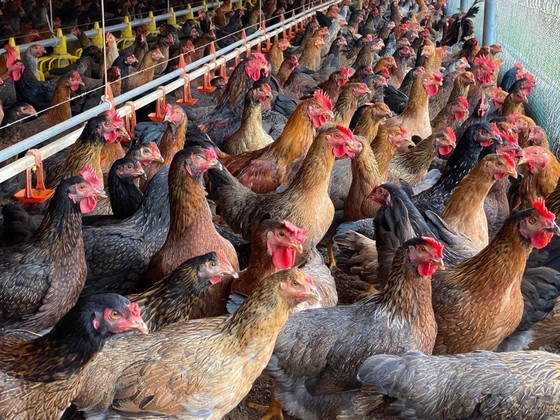 |
A view at the conference |
The information was released at a conference to find solutions for solving difficulties for poultry production and farming in Vietnam organized by the Ministry of Agriculture and Rural Development in the capital city of Hanoi this morning.
Deputy Director of the Department of Livestock Production under the Ministry of Agriculture and Rural Development Tong Xuan Chinh said that Vietnam is among the top countries in the world having the biggest number of poultry flocks and the second largest number of water-bird.
From 2018 to 2022, the number of poultry flocks rapidly increased from 435.9 million to 557.3 million chicken with an average growth of 6.3 percent a year.
The number of poultry raised in the country is huge and poultry meat and egg production could meet the consumption demand of the 100 million population and be available for export. However, at the current times, Vietnam still allows importation of a huge number of poultry.
 |
Vietnam has mostly imported poultry products from the United States with a proportion of 41.5 percent, Brazil with 22.1 percent, the Republic of Korea and Poland with 18.1 percent and 11.6 percent, respectively.
In the first three months of the year, Vietnam imported live chicken for slaughtering, equivalent to 1,120 tons of chicken meat, and 47,817 tons of poultry meat.
Regarding the import market, in February, the Republic of Korea was the top provider of chicken to Vietnam with more than 6,000 tons, worth over US$7.6 million, followed by the United States with over 4,200 tons with more than US$4.2 million. Brazil and Poland exported to Vietnam a total amount of nearly 4,500 tons and more than 976 tons, respectively.
There are more and more poultry imported to Vietnam, seriously threatening the domestic livestock industry and affecting livestock production and causing big losses for the domestic market.
























